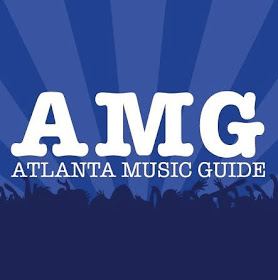By Noel Wurst
On May 29 at Hard Rock Café’s Velvet
Underground, Atlanta
own Leslie Fram is hosting a benefit for the Unbreakable Music Foundation (UMF), a
charitable organization set up to “raise
funds in order to put computer equipment and music software in schools for students
with physical challenges.”
Heralded
multi-musical genre producer Simon Illa started UMF and he beautifully
explains the inspiration behind it. "When
you break it down, music and its creation does not come from one's hands. It
all starts in the mind. And by giving young people, with physical challenges,
the technology to create and explore music, they are given an opportunity that
I did not have early in life."
Staff writer Noel Wurst recently had the opportunity to speak with
Simon, and to learn more about this organization, and his goals for it.
How long have you been living here in Atlanta?
About a year and a half.
How would you say the music scene here in
I’d say that
know? There are more artists getting
signed down here. And even if an artist
isn’t actually from here, it seems like a lot of them are coming through
here. Also, what I really love about Atlanta is that
it really goes beyond hip-hop. I’ve
produced numerous genres of music, and that’s what I like. Philly was really, really great, Atlanta just has a larger
playing field right now, you know?
How long ago did you start the Unbreakable Music Foundation?
We actually just started it this year. It was just an idea that I brought to Lanny
West [Leslie Fram's husband] over at Tipping Point Entertainment, and we kinda just ran with it and
it’s picking up really fast.
Is it just the two of you involved or is there anyone else that deserves
some recognition?
The foundation itself is me and Lanny and Eileen Tilson is
doing PR for us. It’s pretty much a
small nucleus at this point.
Is the event at Velvet Underground at Hard Rock the
first benefit that you’ve had for the foundation, and are there plans for
events in future cities or even more here in
Yeah, this is the first
one, and obviously we’d love to do more, to take it anywhere people would be
really into it. The interesting thing is
that everything with it has evolved so fast that I haven’t even really thought
about it much, you know? We’re getting a
lot of really good response for this event, so I’m really looking forward to
it. I really want to see how it
goes. I know it’s going to be great, but
to see it happen and to then know how to make it even better, to be able to do
different things with it, to make it progress.
I’ve read a couple of interviews with you that said
you’d gotten to meet a couple of people in wheelchairs for instance, that you’d
been able to inspire – other people with physical disabilities or
conditions. I was curious whether you’d
ever been able to meet or work with anyone who also had your same condition,
osteogenesis imperfecta? It seems like
that would be amazing for someone with that condition, to meet someone else
with it who had been able to accomplish so much in their lives, as you have.
You know, I’ve met a
handful of people in the music industry who might have certain disabilities but
what’s interesting is what makes the foundation more relevant to me, is that a
guy like me, getting into this industry as far as I have, is really a
rarity. And that goes for anyone. Take an individual who’s so-called
“average.” Put them in the music
industry and see how far they go.
Combine that with my physical situation, and the chances of them
succeeding are even slimmer. This is the
point of the foundation. There are
probably young people who might be in my position, young kids who have an
affinity for music or composition and they can’t be in the school band, or
participate in similar activities.
That’s where the foundation really comes in. We want to put equipment in schools for those
kids. To learn music in middle and grade
school – the sky’s really the limit. So,
in a long story short, I haven’t been
able to meet or work with anyone with my same condition and I want to make that
less of a rare thing.
